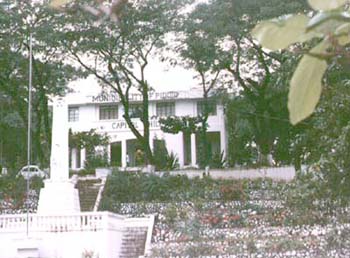

| Municipality of PIDDIG |

Piddig is one of the 23 local government units comprising the province of Ilocos Norte. It is located 17 kilometers east of Laoag City with a land area of about 17,043 hectares. It is relatively a small town with 23 barangays. Its poblacion or town proper, where the seat of the municipal government is located composed of barangays Cabaroan, Anao and Loing, is an island in itself. It is nestled on top of the elevated western portion of the community approximately 100 meters above sea level and surrounded by the Dingras River on the west and the Guisit River on the east. "Pidipid" was the town's original name. The word "pidipid" signifies hills and rolling terrains. This place was settled in by mountain tribes called "Itneg" until more civilized settlers from the coastal towns has grown in number. Eventually, they have built a new community and came to think of changing the name "Pidipid" to "Piddig" - a corrupted Ilocano term describing the place.
Piddig is the 11th town organized in the Province of Ilocos Norte. It was founded in 1770, under the patronage of Sta. Ana. The old Catholic Church built on top of a hill, the ruins of a once magnificent convent and the bell tower which is a few meters away from the church are conspicuously reminiscent of the militant Castillan missionaries and daring conquistadores. Yet, be that as it may, Piddig has it contribution to Philippine History, foremost of which is the Basi Revolt of 1807 when the Piddiguenos rose in arms to resist the Spanish Monopoly which sentiment spread all over the Ilocos. Piddig is peaceful town and the home of peace - loving people who speak the Ilocano dialect with different intonations. They are also sturdy and industrious. They are engaged in farming, lumbering, herbing, manufacturing, fishing and hunting. Most of the Piddiguenos are engaged in agriculture. When it comes to their industries, all family numbers work hand in hand to raise rice, sugarcane, corn, tobacco and maguey. Basi, a favorite beverage is the source of income. Corn is chiefly used for feeding animals. Tobacco is enough for local consumption, by maguey can supply the needs of the locality. Manufacturing and mining are prospective industries of Piddig. Along the mountains are mineral deposits like manganese, silver and lead. |






